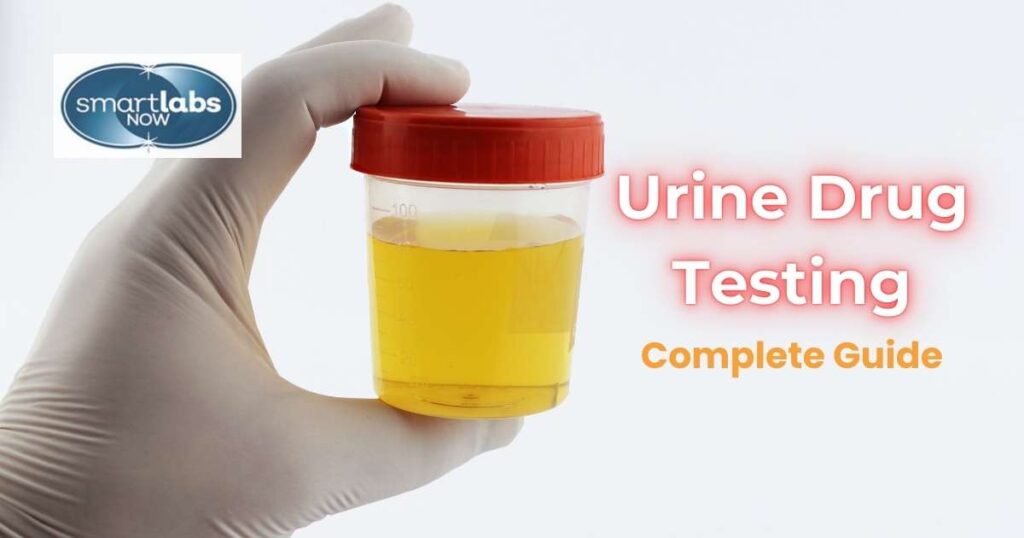
Urine drug tests are essential tools used for various purposes, including medical evaluations, legal compliance, and workplace safety. These tests detect the presence of substances in the body, helping identify drug misuse, manage substance use disorders, and ensure adherence to prescribed treatments.
From detecting prescription drugs to illegal substances like synthetic opioids, urine drug tests play a pivotal role in healthcare and beyond.
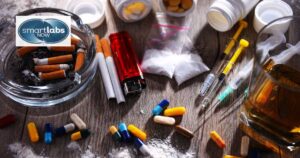
Urine drug tests serve multiple purposes:

Urine drug tests come in various formats tailored to specific needs:
Screens for commonly misused substances, including recreational drugs like amphetamines and intoxicants.
Used to monitor patients with chronic pain to ensure proper medication use.
Follow strict guidelines to test employees in safety-sensitive roles and for hiring background checks.
Conducted after an initial screen, often using advanced techniques like gas chromatography/mass spectrometry (GC/MS), ensuring accurate identification of substances.
Offer quick detection of a broad range of drugs, including prescription medications.
Proper urine specimen collection is crucial to ensure reliability.
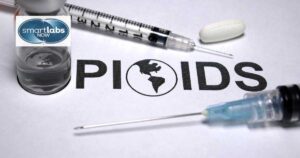
Urine drug tests detect a wide range of substances, including:
Advanced technologies like ultra-high-performance liquid chromatography and high-resolution mass spectrometry enhance detection capabilities, offering precision in identifying substances even in trace amounts.

To ensure accurate results, follow these guidelines:
Inform the technician about any prescription medications you’re taking to avoid false positives.
Wash the genital area and use a clean container to prevent contamination.
In supervised settings, trained staff may observe to ensure integrity, utilizing tamper-proof packaging and temperature measurement for validation.
If a retest is required, understanding how the body metabolizes specific substances can help determine when to reschedule. For example, marijuana may remain detectable for weeks, while alcohol clears within hours.
Addressing issues like sample contamination or dietary impacts can improve the accuracy of retesting. Proper hydration and avoiding certain medications beforehand can also prevent misleading results.
Test anxiety is common, especially for first-time participants. Reviewing the steps involved in urine collection, including the clean-catch method and chain-of-custody protocols, can help alleviate concerns.
Staying hydrated is essential for providing a sufficient urine sample, but overhydration can dilute the sample and result in an invalid test. Drink water moderately in the hours leading up to the test to avoid complications.
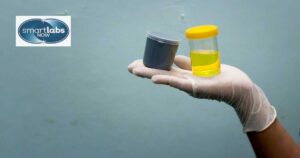
The process of conducting a urine drug test involves:
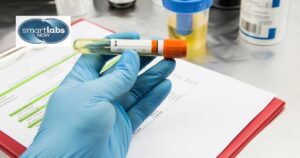
Understanding test results is key:
No drug or metabolite was detected above the cutoff value.
Indicates substance presence, requiring a confirmatory test for accuracy.
Suggests issues like sample contamination or tampering.
Can occur due to medications or improper testing methods. Advanced techniques like GC/MS minimize errors.

Urine drug tests conducted by licensed labs are protected under the Health Insurance Portability and Accountability Act (HIPAA). This ensures your results remain confidential and cannot be disclosed without your consent, except when legally required.
Test-takers have the right to access their results and request clarification on their interpretation. Labs must also inform individuals how results will be shared with third parties, such as employers or healthcare providers. It’s important to ask for this information beforehand to avoid surprises.
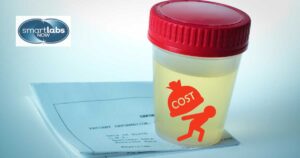
The cost of urine drug tests varies based on factors like testing type and insurance coverage:
* Please call us at ☎ (503) 477-7748 to confirm exact pricing.
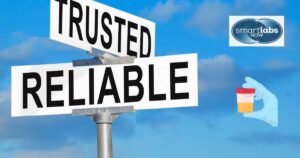
Urine drug tests are highly reliable when performed correctly:
Techniques like GC-MS ensure accuracy.
Rare but possible, often due to improper sample handling or interfering substances.
Results are typically available within 1-3 days.
Certain substances may fall outside the detection window, necessitating additional testing methods, such as hair follicle drug testing.
Improper storage of urine samples, such as exposure to extreme heat or cold, can degrade the specimen and compromise test accuracy. Laboratories must ensure samples are stored and transported at appropriate temperatures (something we’re conscious of at all times 🙂).
Certain substances, including over-the-counter medications (e.g., antihistamines) or dietary supplements (e.g., CBD oil), can lead to unexpected results. As mentioned, it’s crucial to disclose all substances you’ve consumed to the testing facility to avoid false positives or negatives.
While urine tests can detect alcohol, their detection window is limited to a few hours post-consumption. For precise measurement of recent alcohol use, breath or blood tests are more effective.
Emerging synthetic drugs, such as certain cannabinoids and cathinones (commonly known as “bath salts”), may evade detection in standard urine panels. Specialized tests are required to identify these substances, which are often not included in routine screenings.
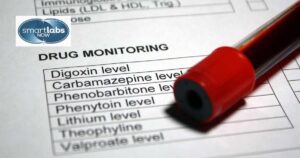
Hair follicle tests can detect drug use for up to 90 days but are less effective for recent consumption (within the last week). They are often used in forensic or long-term monitoring scenarios.
Saliva tests are noninvasive and ideal for detecting drug use within the past 24-48 hours. Due to their simplicity and speed, they are gaining popularity for on-site workplace testing.
Blood tests provide the most accurate results for recent drug use but are invasive and typically reserved for medical or legal situations, such as impaired driving investigations.
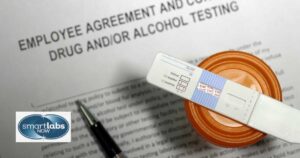
Employers implementing random testing programs should avoid predictable patterns. Varying the frequency and timing of tests ensures fairness and deters employees from attempting to falsify results.
Employers can request customized drug panels tailored to industry-specific risks. For instance, the construction industry may prioritize tests for opioids and stimulants, while the transportation sector may focus on alcohol and sedatives. Another good option here is to consider preconfigured 5 and 10-panel drug tests, which comprehensively screen for the most commonly abused substances.

Advancements in immunoassay technology now allow for rapid results at the point of care. These tests provide immediate preliminary results, particularly useful for workplace testing or emergency settings, and reduce the need for confirmatory lab testing in negative cases.
Artificial intelligence is increasingly used in laboratories to analyze drug test results. AI can enhance accuracy, minimize human error, and reduce false-positive rates, particularly in large-scale testing scenarios.

Although convenient and accessible, these are often inaccurate. At-home urine drug tests can be purchased over the counter:

In states like Oregon, employers are often required to inform employees about their drug testing policies before conducting tests. These policies typically outline the conditions under which tests are administered, such as pre-employment screening, random testing, or post-accident procedures. Understanding your rights under local labor laws can ensure compliance and prevent disputes.
Urine drug tests may be legally mandated for court cases involving child custody, probation, or driving under the influence (DUI). These tests must follow strict forensic protocols to ensure results are admissible in court. Chain-of-custody documentation is critical in these situations, as it prevents tampering and establishes the validity of results.

If you’re in Portland and need a urine drug test, we’ve got you covered. At Smart Labs Now, we offer:
Stay confident with our reliable and comprehensive screening options!
Book your test today 👍.
Please consult your primary care physician before engaging with any pharmaceutical, natural substances, or activity regimens mentioned or prescribed in this post. Smart Labs Now is not responsible for health or life outcomes based on the information or recommendations provided. This account does not serve as a substitute for professional medical advice/help.